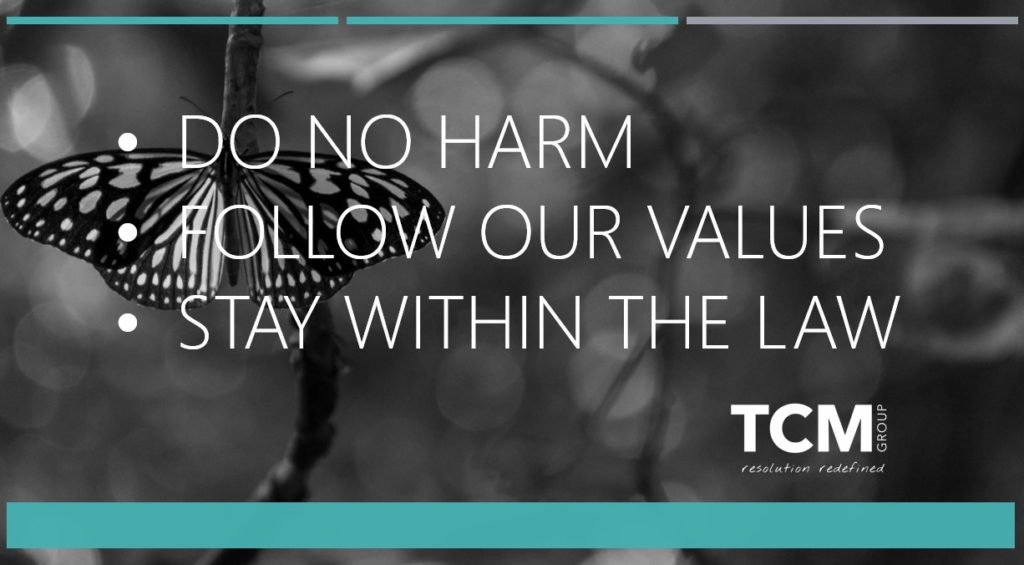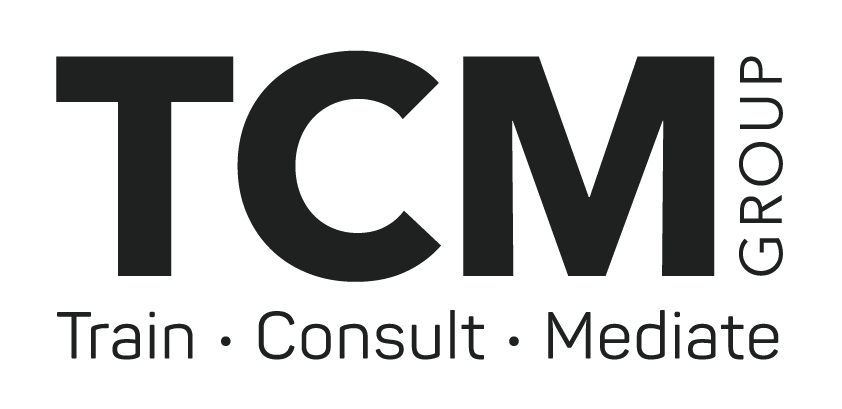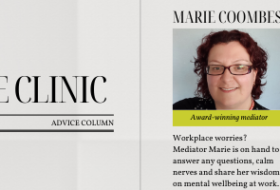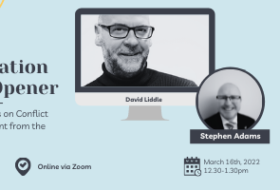or, why the time has come for a radical rethink of Human Resources.
If there is one potential positive that comes out of the current Coronavirus crisis it is this – it presents a much needed opportunity for HR to take stock and to reflect.
We are witnessing some powerful and moving responses from our neighbourhoods and communities at this time of national and international crisis. After an interminably long period of deadlock, dogma and division caused by Brexit, we are now seeing a more compassionate, supportive and kinder tone emerging – something which is thankfully, more human and more humane. The restrictions and the perpetual stream of bad news across all of the media outlets appears to have forged a sense of community, belongingness and common purpose as we all try to make sense of this new reality. The recognition of front-line workers as the key to helping us get through this has opened all of our eyes. I don’t think I’ve ever thanked a dustman before, I did this morning.
It seems that, whilst we have seen occasional bad behaviour and irresponsible messages from some, the majority of us are recognising that community, empathy and collaboration are the most powerful tools that we have to overcome the worst impact of this pandemic.
We have also seen HR doing some great work during the Covid19 pandemic – supporting employees and providing much needed stability and support to people during a period of great stress and uncertainty. For that I applaud the efforts of every HR professional and every HR team up and down the land.
However, I feel the time has come to call out what I believe is the current broken paradigm within which modern Human Resources operates.
Traditional HR policies, procedures and processes are broken beyond repair.
My experience as a mediator, a facilitator, a trainer and more recently as a whole systems OD consultant has led me to believe that the traditional HR systems are broken beyond repair. The 3Ps of HR (policy, process and procedure), in their current form perpetuate a negative, damaging and corrosive tone within our workplaces. The worst of these being the GBH policies – grievance bullying and harassment. Although, the traditional sanction based, punitive and risk averse policy of all is the traditional disciplinary policy. This has got to be the most disingenuous of all of the HR policies in the modern employee handbook. Talk about isolation, fear and uncertainty. The traditional GBH and disciplinary policies offer these in spades.
You can’t think straight when you are stressed
Neuroscientists tell us that it is virtually impossible to engage in rationale and cognitive behaviour when our amygdala is switched on and we are full of stressor hormones. I remember doing a cortisol audit once of a fairly standard disciplinary policy for a large client of mine. I simply highlighted the parts of the policy in red, whenever it would cause a cortisol response in either the manager or the employee. The entire policy was highlighted red (as was the HRD’s face)! It’s fair to say it wasn’t long before that particular policy found its way to the nearest shredder!
I don’t think this is intentional (but it’s time for it to stop)
Traditional HR policies undermine trust, infantilise the workforce, sow the seeds of division, impede creativity and hurt people. If I got off the fence for a second, I might go as far to say that the traditional systems of HR damage the very essence of what it means to be an engaged, productive and healthy employee. It’s a paradox that the very function within organisations who should be driving engagement and wellbeing are undermining it (often without realising, I hasten to add) with the processes and procedures that they use to manage their people.
Just look at the impact of home working during this crisis – people can be trusted to get on with their jobs, they are loyal to their employers and they are showing great flexibility, resilience and dedication. It took a microscopic virus and a global pandemic for us to realise that most people are decent and trustworthy and don’t need to be boxed in by unnecessary and burdensome policies and procedures. Whatever you do DO NOT write a coronavirus policy – trust your people to get on with the job in hand and HR, please offer the support and compassion that they deserve at this difficult time. They do not need another policy, they need you to treat them like human beings.
I am sorry to say this as I work with some amazing HR professionals. This is not personal. I think you do amazing work. However the systems within which you work prevent you from delivering a truly compassionate and supportive approach and, worse, the traditional HR policies, processes and procedures, which you have come to rely on, are toxic, destructive damaging and divisive. They create isolation, they perpetuate a culture of fear and they create incredible harm. Just ask the partner of Amin Abdullah if you don’t believe me.
The traditional employee handbook is like a badly written script in a badly directed film
Climate change has fallen off the agenda for a while, but it’s not gone away. And when I see the excessive size of many employee handbooks, I fear that the amount of paper used by some companies to control their workforce is actually increasing CO2 emissions. The modern employee handbook has always been a source of frustration for me.
Chapter one: welcome to your new organisation, it’s great to have you here.
Chapter two: we don’t trust you, so we are going to tie you up in red tape.
Chapter three: when you are naughty, we will do this to you.
Chapter four: when others are naughty, we will do this to them.
Chapter five: when we decide it’s time for you to leave we will do it this way so that we don’t get caught out at a tribunal – after all we can’t have our employees beating the system, can we?
No wonder people act like children and then come running to HR to save them. That’s what I meant about infantilising the workforce earlier. It’s like a bad script in a badly directed film. The traditional employee handbook drives the very worst behaviours and it creates a narrative which benefits only a few people who have a vested interest in the perpetuation of bad behaviour at work – you know who I’m talking about here don’t you?
So HR, it’s your chance to save the rainforest and reduce the amount of paper you create. In fact, I could write your entire employee handbook for you in three simple lines:
What I’m saying is that, at this time of reflection, HR could begin to reimagine the corporate rule book. My team and I are working with numerous organisations such as TSB, London Ambulance Service, Aviva, HSBC, Capgemini and many others to help them reframe their people policies and to help them to develop a fair and just culture. If nothing else, it’s time to shred the dreaded GBH and disciplinary procedures and replace them with something new – a Resolution Framework.

The TCM Resolution Framework merges discipline, grievance, bullying and harassment into one overarching policy framework:
- The TCM Resolution Framework has been tested in the employment tribunal and is fully compliant with the Acas code on discipline and grievance.
- The focus of the TCM Resolution Framework is on early resolution between the parties with supported resolution processes including: mediation, restorative conversations, coaching and mentoring.
- A multi-disciplinary Resolution Unit comprising trained HR/ER, unions and managers is established to manage resolution within the workplace. The day to day running/resourcing of the Resolution Unit is carried out by HR.
- A Resolution Index (RI) and a set of triage criteria offers an objective and impartial way to assess (triage) cases and to determine the most suitable route to resolution in each case.
- Grievance forms are replaced with a new Request for Resolution (RFR) form.
- Disciplinary warning are replaced with reminders (1st, 2nd and final).
- The Resolution Framework triangulates against a clearly defined values and behaviours framework. We are finding that these values and behaviours frameworks are assisting managers to have better conversations about employee behaviour and conduct and to set out clear expectations and objectives for the future..
- Disciplinary or grievance hearings and panels are replaced with formal resolution meetings.
- The employer is still able to investigate, suspend and dismiss in the most serious cases.
- The right to be accompanied to formal meetings and the right of appeal are fully enshrined with the resolution policy framework.
What could HR look like post the pandemic?
In the new world which will emerge once this is all over, HR has a once in a generation opportunity to reinvent itself. This is a chance for HR to become the enablers of a person centred and values-based workplace culture. I must confess, I am not a huge fan of the Dave Ulrich model of HR. It’s not the fault of the Ulrich model per se and I can see that the model could work well, on paper. It’s just that the model has been badly integrated and the two most important elements of the Ulrich model ‘employee champion’ and ‘change agent’ have lost out to ‘strategic partner and ‘administrative expert’. HR directors and others could be using this period to reflect deeply on this tension in the Ulrich model and seek ways to resolve it. That must be about having a deep and meaningful conversation with your employees to understand what they need and what they aspire to. Come on HR, give your people a jolly good…listening to!
HR is dead, long live People and Culture!
If HR is going to survive, after this is all over, maybe it’s time to change. A change of name could help. I applaud efforts of many HR teams to reframe themselves as people and culture teams. When HR liberates itself from chasing a seat at the board table and develop a new form, drawing inspiration from systems thinking, positive psychology, emotional intelligence, appreciative enquiry, principled negotiation, nudge theory plus some basic mediation skills, the transformation is as magnificent as it is impactful.
If you are an HR professional and you are sat at home right now, there will never, ever be a better time for you to reflect on your purpose and to reframe the essence of what it means to be in HR. The world we work in is changing in front of our eyes. We can’t bring our employees back from the horror of Covid-19 and offer them the same tired paradigms of division and dogma. HR, you hold the key to a change in the very essence of what it means to be an employee in a modern organisation, Please, whatever you, don’t waste this golden opportunity.
About the author
David Liddle is the CEO and Founder of The TCM Group (Train. Consult. Mediate.). He is also author of ‘MANAGING CONFLICT- a practical guide to resolution in the workplace’ (2017) Kogan Page/CIPD
If you would like to discuss David’s Resolution Framework and to receive a free toolkit for implementing a resolution policy in your own organisation, please contact him at [email protected].








